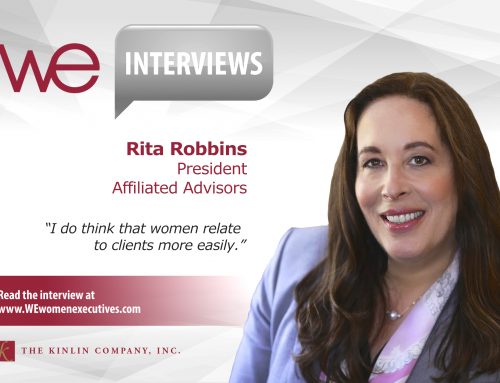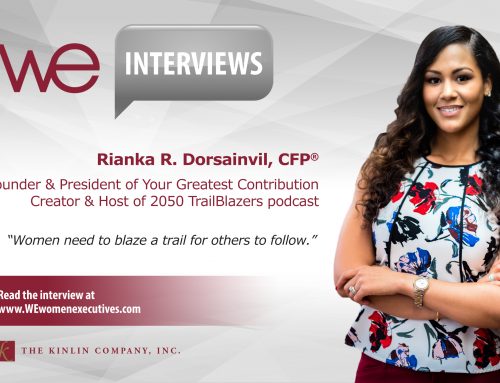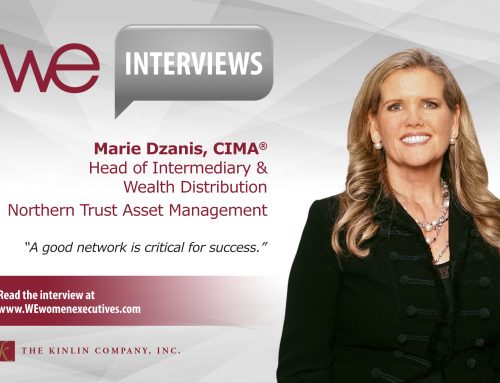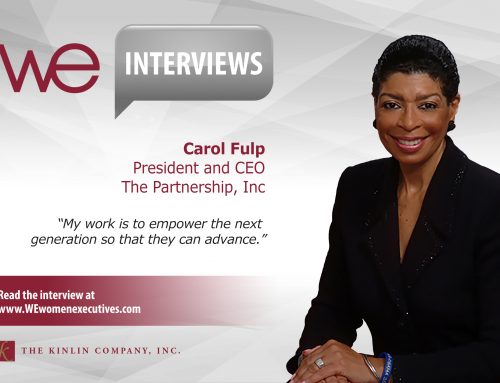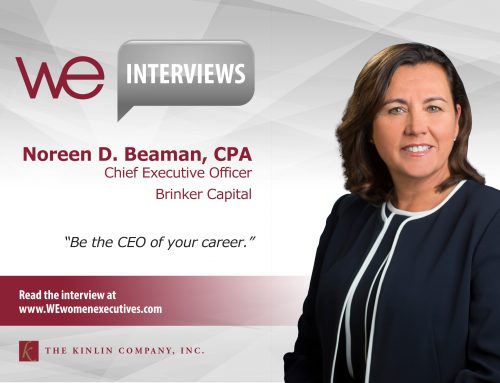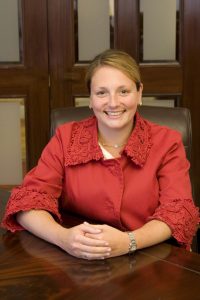 Alisa Amarosa Wood
Alisa Amarosa Wood
Member
Kohlberg Kravis Roberts
As a Member (the firm’s highest rank) at Kohlberg Kravis Roberts (KKR), overseeing the firm’s global capital raising and product development across private equity, energy, infrastructure and real estate, Alisa Amarosa Wood covers a significant part of the firm’s business areas.
Having been part of KKR for over a decade, Alisa is proud of the firm’s growth from 190 employees when she joined to approximately 1,200 employees around the globe today, with assets under management totaling close to $100 billion as of March 31, 2015 and a $13 billion balance sheet.
I recently sat down with Alisa to discuss the story of her success in this intensely competitive environment. In Part One of our interview, she shared her journey into the financial sector and into private equity in particular.
Success is gender neutral
It’s widely acknowledged that the private equity field tends to be male dominated, yet Alisa has thrived in this space. To begin our conversation, I asked what steps she had taken to realize success in spite of this conceivable negative gender bias.
“I actually don’t view it as being successful in a male-dominated arena; I just view it as being successful. I don’t really believe there’s a difference between the sexes when it comes to success. People may feel differently, but in reality, I think that if you work hard, do a good job, work with good people and are in a place that has a supportive culture, it’s less about your gender and more about your work product.”
Mentors are hugely beneficial
I pressed Alisa, asking if she were certain there wasn’t anything in particular she had done as a woman within the private equity arena that had helped her navigate into her current role as a Member at KKR.
“Maybe I’ll take the question a little bit differently. I think there are a lot of things I’ve done to be successful, but I don’t view those things as unique to me as a woman. I’ve had great mentors, and the irony of that is that most of my mentors have been men—out of all of my mentors only one or two were women. Having a great mentor, and having people guide and shape me in my career from early on and give me great advice at different pivotal moments—that has been a huge benefit to me.”
Does Kohlberg Kravis Roberts have a formal mentor program, I asked.
“We have a strong mentoring and apprenticeship culture. In some cases, mentors emerge informally and organically; in many others, they are assigned more formally. We also put a strong emphasis on 100-day integration plans for experienced hires – yet another way in which mentorship and guidance is provided. In whatever form mentoring takes – and whether for senior or junior professionals, we believe in it strongly and value it highly. When I started at the firm a dozen years ago, we were a lot smaller. I think it’s important to help individuals navigate what is now a larger organization of 1,200 people.
“We have an entire group within the firm that focuses on talent management and talent development, which I think is very, very important. The team handles everything from ensuring that employees are being well integrated and coached over the course of their careers, including given access to executive coaches and training programs. For example, if you feel you need help with your presentation skills, we can provide you with access to those resources. We invest in our people. We have a culture where people tend to stay for a very long period of time—we’re typically not a career stop, we’re usually a career destination—and that’s very important for us.”
Is there any allowance for ‘natural selection’ so that new employees can pair up with mentors they resonate with, rather than ones that they’re assigned to, I queried.
“What we’ve tried to do is make it as natural as possible, so that we can make sure a mentoring relationship is established, and then we allow nature to take over. It’s been a balancing act; some people are naturally good mentors and others aren’t. Not everyone has to be a mentor. One person may mentor several individuals, and I think that’s okay. We’ve seen what works as well as what doesn’t, and we’ve built on that. I think that’s been important. I also think that certain people, even though they may not be formal mentors to others, have become ad hoc mentors. That’s been really important too, depending on where someone sits in the firm, how long they’ve been there, what types of things they’ve handled, etc.
“For instance, there are several of us who have kids and we tend to mentor other women who either have kids or want to have kids. You tend to be the person they approach to say, ‘How do I do this? I’m really worried about X, Y or Z’ –it’s just natural. I think we handle that really well in our culture. We have good people, people who want to help others. We have a very tightknit, unique culture that’s very collaborative. You want to see others succeed and you want to help them because people help you—no one succeeds alone. I think this culture allows us to have more of that natural evolution with respect to mentoring.”
Finance wasn’t the plan
Alisa has realized considerable professional success at quite a young age in a predominantly male environment. Given her youth as well as her admitted dearth of female mentors, I was curious as to the influences that had informed her decisions. Who or what, I asked, had initially led her into the field of finance and ultimately to Kohlberg Kravis Roberts?
“Well, to be really blunt about it, at age 18 I wasn’t planning to go into finance. I actually wasn’t planning to go to college at all—I was going to dance. I had danced with The Joffrey Ballet School here in New York my whole life, and I really wanted to pursue dancing. I told my parents that I want to dance and my mom was very supportive, she told me to follow my dream. But my dad said, ‘No, you’re going to school.’ So I made a deal. I said I would apply early to Columbia College and if I got in, I would go, and if I didn’t get in, I was going to take a year off and dance. I was going to try it out, and if I discovered that it wasn’t going to work, I would go back to school. But I wanted my shot.
“Well, I got into Columbia early, which by the way is a fantastic thing, and I never looked back. I didn’t really dance anymore after that. Instead, I decided to major in political science — I was not a finance major. I wanted to work in DC on Capitol Hill. I wanted to be involved in government. I was very passionate about that and I thought it made sense. I did a number of internships, spent a lot of time in that area.
“I realized pretty quickly, however, probably halfway through my sophomore year, that I was going to graduate with a lot of college loans that I would have to pay back all by myself, which was really daunting. I thought, ‘I’ve got to support myself. I’ve got to be able to pay for these loans I took out. What am I going to do to make the money?’
“I decided to try finance, even though I had no idea what finance was. I wound up getting an internship the summer between my sophomore and junior year on the floor of the New York Stock Exchange. It was around the same time that Maria Bartiromo started to report from the floor, and having a woman on the floor was a huge deal.
“I was working at this small desk on the floor, and when I walked in a guy slapped me on the back and said, ‘So you’re here to find a husband.’ I looked at him and said, ‘With all due respect, if I were looking for a husband, this is probably the last place I would be.’ The whole desk roared with laughter and after that everyone’s attitude was, ‘She’s untouchable—nothing’s going to faze her.’ I worked really hard and it was very interesting, but by the end of the summer I knew I didn’t want to do trading.
“I went back to school and started taking a lot of economics classes, because Columbia doesn’t offer a finance major. I knew I needed to understand the markets if I was going to get into finance. I spent time finding a job and I got accepted into the investment banking internship program at what was then either Bankers Trust or Deutsche Bank, depending on when the merger happened. I joined their private equity group and subsequently stayed on after graduation. It was really interesting. They had a pretty big private equity group and they did all parts of the business including fund placements to fund of funds, secondaries to mezzanine investing, emerging markets to middle markets, everything really.
“I spent my time on the placement side of the business and quickly realized that I really loved it. I found it interesting how we were structuring and then placing a lot of in-house proprietary products, but also bringing in a considerable number of external managers to create a balanced offering for our clients. After a few years though, I hit a point where I didn’t want to be at a big bank anymore. Culture really matters and I wanted to be aligned with a group of like-minded individuals where I could see myself growing and evolving with a changing business model.
“I wanted to find a place that was smaller, more entrepreneurial, less prescriptive, less bureaucratic and that had people that I could learn from and work well with. I was 23 years old and I literally went door to door and shopped this crazy idea to many of our major competitors. I didn’t have a head hunter. I knew no one. I was trying to do this under the radar. I literally would show up at every firm saying, ‘You need somebody to think about you as a business. You need to have somebody thinking about your products, how you can grow your capital base, how you structure that capital, how you grow into new asset classes.’ Nine times out of ten, people thought I was crazy. They said, ‘We don’t have that function and we have no need for it; interesting idea, but we are not interested right now.’
“So I knocked on KKR’s door. In fact, I received two letters from KKR saying, ‘Thanks, but no thanks,’ one of which was from Henry Kravis. But then I received a call from one of the other senior Members saying they thought my idea was worth exploring and that although they weren’t looking for anybody, they would like for me to come in and talk about it. So I spent a few months talking to KKR about this crazy idea I had and realized in the process that several people here were on the same page, and they ultimately hired me. They said, ‘We don’t know what this is going to look like long-term, but we hire best-in-class athletes who can play multiple positions and we think you can play a lot of positions here. It’s your business plan. Go make the most of it.’ It was a huge opportunity, and the rest is history—that’s how I got here.”

